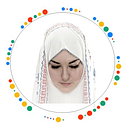To know Good, you need to know God.
The reason is simple: God possesses the most perfect names and attributes and He is the source of all goodness. Even though the concept of God itself varies from culture to culture, there is a basic understanding of God that most of us will arrive at if we use our minds. Even if people don’t think deeply about it, most would naturally agree; God is one, unique, genderless, eternal and nothing like His creation. This is the description of God in the Quran:
“Say, ‘He is God, [who is] One, God, the Eternal Refuge. He neither begets nor is born, nor is there to Him any equivalent.”
THE QURAN, CHAPTER 112, VERSES 1 TO 4
Without God, the idea of ‘good’ would be nothing more than a social rule. Therefore, good deeds like “defending the innocent”, “feeding the poor” or “loving thy neighbour”, for example, would simply be rules based on our limitations; no different to saying you can’t cheat in a game.
This is because God is the only foundation for goodness.
God provides this foundation because He is external to the universe and is perfect. He is beyond human limitation and is perfectly knowledgeable, powerful and the source of all goodness.
In other words, knowing God is knowing good.
To start your journey towards knowing God, you need to understand His names and attributes. This booklet lists the beautiful names of God taken from the Quran and the teachings of the Prophet Muhammad (peace be upon him).
“He is God: there is no god other than Him. It is He who knows what is hidden as well as what is in the open, He is the Lord of Mercy, the Giver of Mercy. He is God: there is no god other than Him, the Controller, the Holy One, Source of Peace, Granter of Security, Guardian over all, the Almighty, the Compeller, the Truly Great; God is far above anything they consider to be His partner. He is God: the Creator, the Originator, the Shaper. The best names belong to Him. Everything in the heavens and earth glorifies Him: He is the Almighty, the Wise.”
THE QURAN, CHAPTER 59, VERSES 22 TO 24
source: “know God know Good”, pages 3–4.
